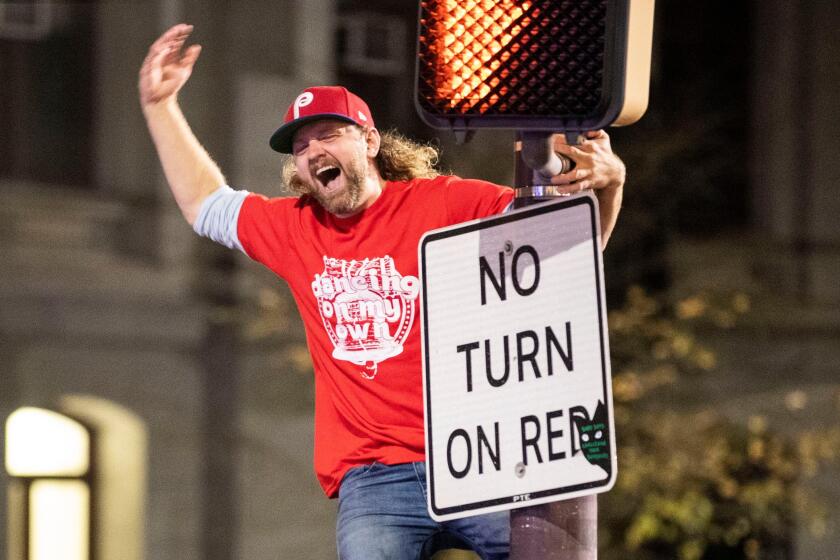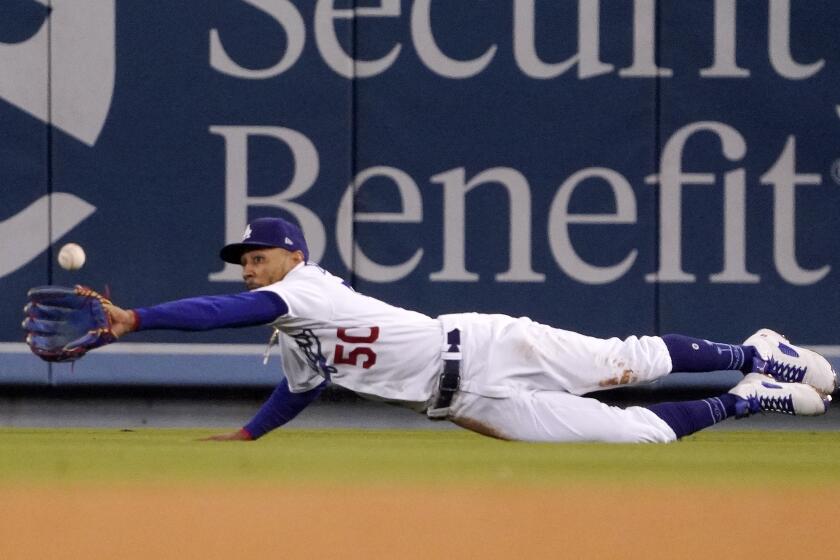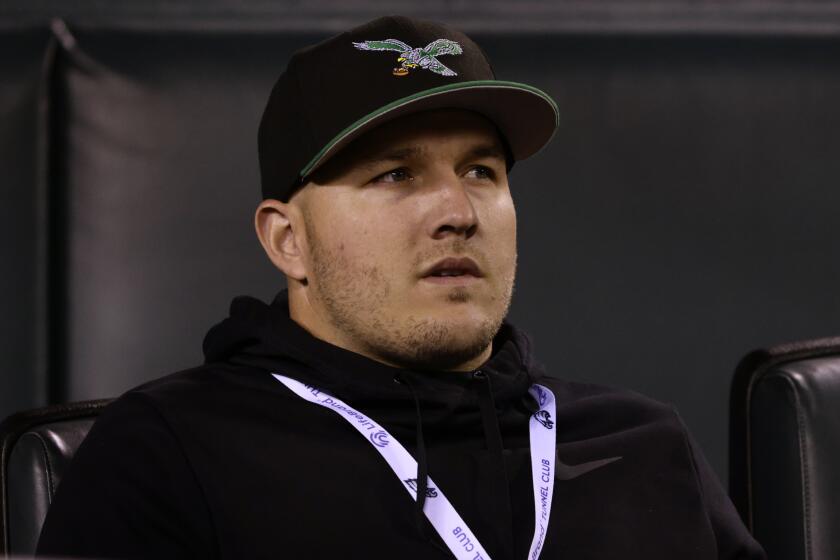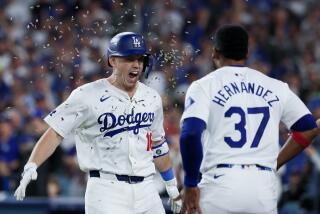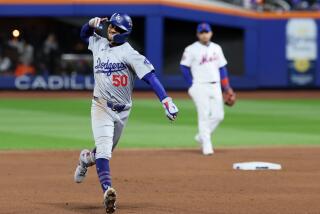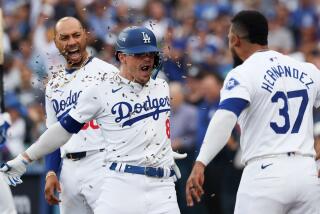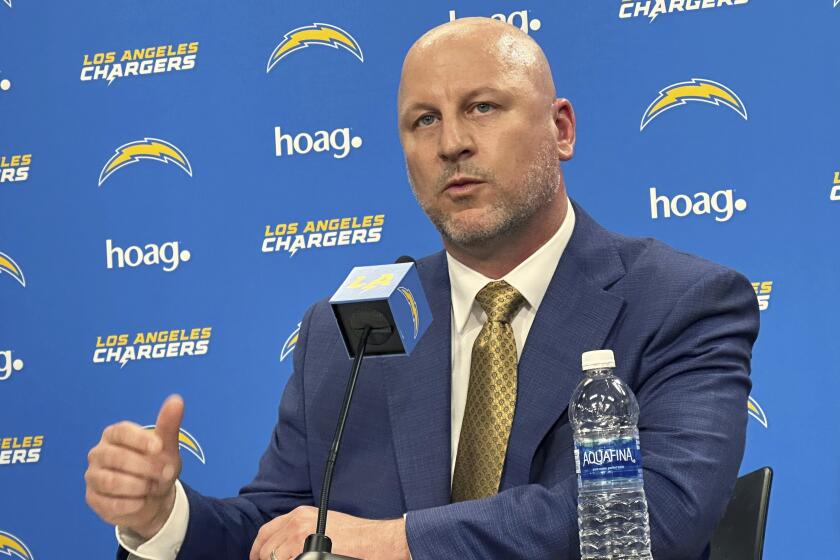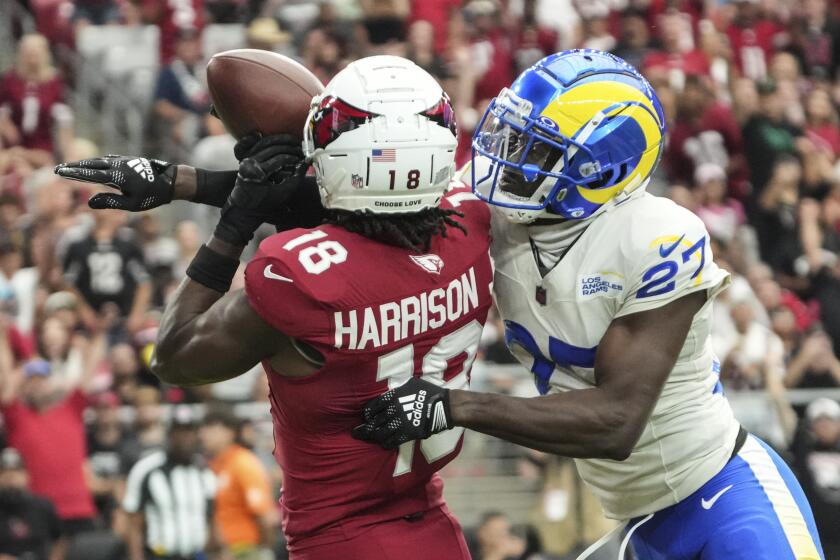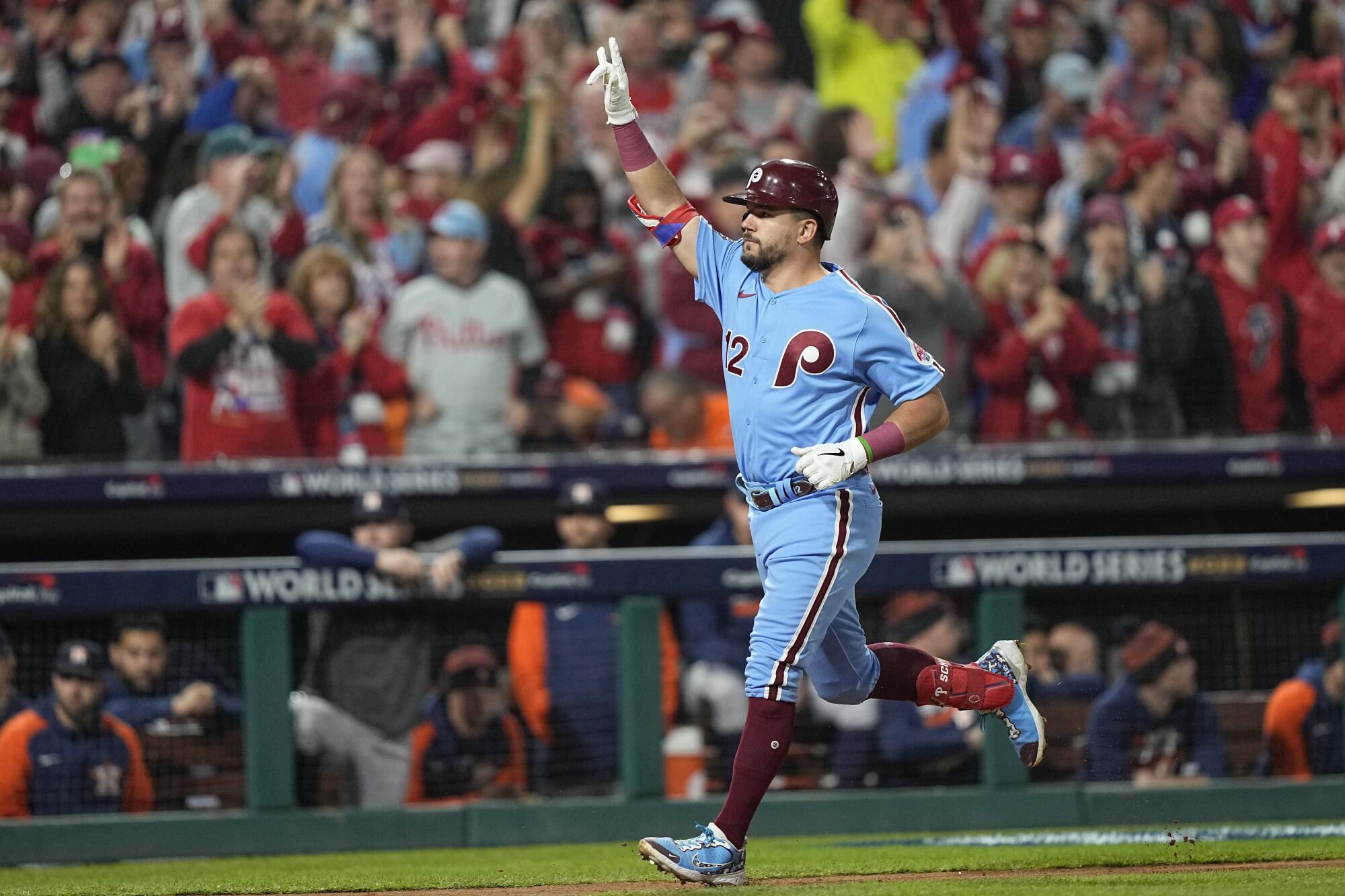
PHILADELPHIA — The Philadelphia Phillies are not the same team from a month ago. The personnel didn’t change; the players, coaching staff, and front office are identical. But they’re somehow a different club anyway.
They’ve morphed from a team that fired its manager in June and finished the regular season 87-75 — losing eight of its final 12 games — to postseason darlings. From an uninspiring, underachieving bunch to a civic treasure fueling a feverish city. They lost Game 5 of the World Series to the Houston Astros on Thursday, putting them on the brink of elimination, but it’s a position they gladly would’ve taken after Game 162.
How exactly did that happen?
“I can’t really explain it,” Phillies right fielder Nick Castellanos said. “We’re a much better team now than we were during the regular season.”
Across the country, the Dodgers are attempting to figure out the opposite.
When sports teams in Philadelphia have postseason success, the fans find a unique way to celebrate by climbing light posts and poles in the city.
They were a much worse team when games mattered. They posted the best record in the majors with a franchise-record 111 wins. They compiled the best run-differential by any team since 1939. They were the championship favorites.
Then the Dodgers lost in four games in the National League Division Series to a division opponent that the previous six months indicated was vastly inferior. The Dodgers were 14-5 against the San Diego Padres during the regular season. They won 22 more regular-season games. None of it mattered.
Their postseason lasted five days because their offense crumbled with runners in scoring position and the bullpen imploded in the seventh inning in Game 4.
“The question is: Is it baseball?” Dodgers president of baseball operations Andrew Friedman asked three days after the season-ending defeat. “Or are there things we can do to improve upon that? Are there levers we can pull, are there things to put us in a better position there?”
In other words, was it just bad luck or could the Dodgers have done something to avoid the disappointment?
Friedman and other officials around the majors have echoed the notion that the postseason is effectively a crapshoot. That most years it’s just about which team gets the hottest at the right time. That predicting postseason fortunes is all but impossible in these small sample sizes. Just last year, for example, the 88-win Atlanta Braves won the World Series.
The Phillies recognized the history, and saw an opportunity.
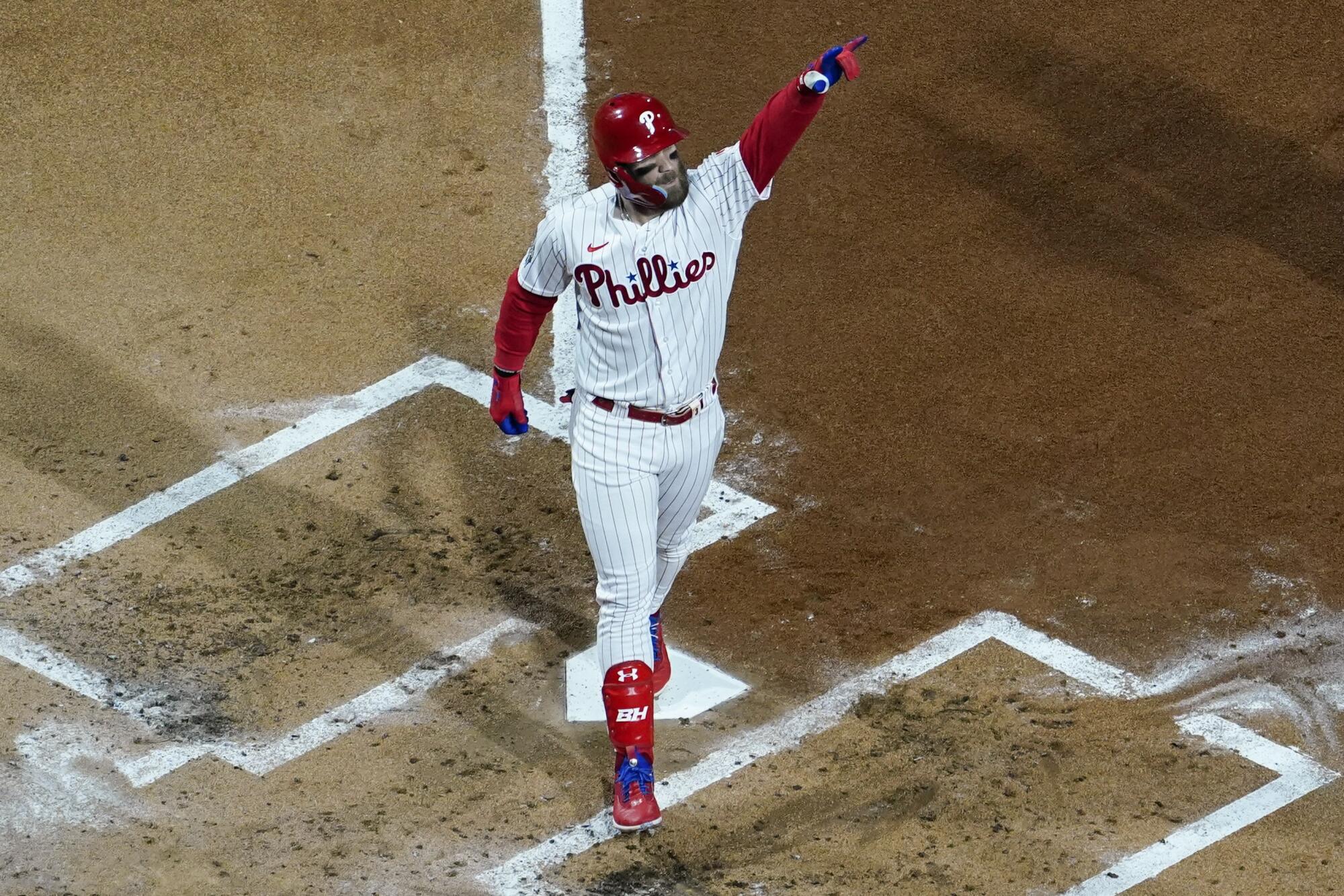
“All we wanted was to get in the postseason because you never know what could happen in the postseason,” Phillies starter Aaron Nola said. “Teams get hot that may not be hot during the regular season later in the year. That was kind of our mindset: ‘Let’s just get in and see what happens.’ ”
The Phillies’ first break was making the postseason at all. They secured the sixth and final NL playoff spot — an entry that didn’t exist until this year after the postseason format was expanded from 10 to 12 teams.
From there, a few factors can perhaps explain the Phillies’ unexpected success.
First, the Phillies are not a small-market underdog story. Their $242-million payroll was the fourth highest in the majors behind the New York Mets, Dodgers, and New York Yankees after owner John Middleton bankrolled another aggressive offseason in search of the club’s first postseason appearance since 2011.
The team signed Castellanos and outfielder Kyle Schwarber during the winter. It re-signed catcher J.T. Realmuto. The three All-Stars were added to a roster that already featured Bryce Harper, Rhys Hoskins, Zack Wheeler and Nola. Middleton was committed to paying the luxury tax expecting to compete for a championship.
But the Phillies started the season 22-29, prompting president of baseball operations Dave Dombrowski to fire manager Joe Girardi and name bench coach Rob Thomson the interim manager. Castellanos said he believed the pressure Girardi felt being in the final year of his contract hurt him.
“He really wanted to get wins,” Castellanos said. “No different than this year I really wanted to do well and get hits. But if you want something more, sometimes that makes it further from you to get. Thomson just understood what he had and allowed baseball to happen over time. He was patient with the process. And I think when you do that then talent is able to rise to the top.”
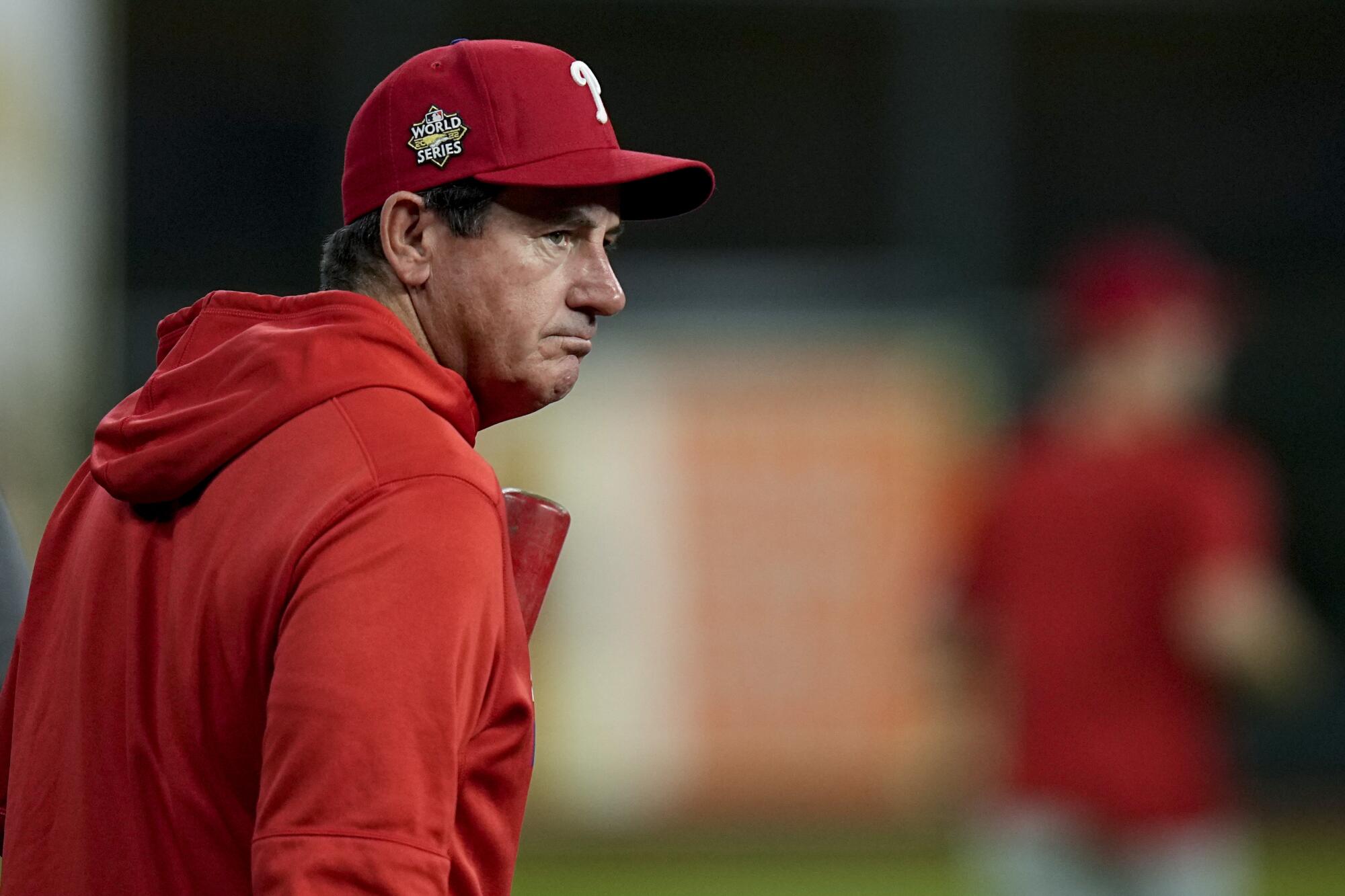
“Thomson just understood what he had and allowed baseball to happen over time. He was patient with the process. And I think when you do that then talent is able to rise to the top.”
— Nick Castellanos, on manager Rob Tompson
The Phillies finished the regular season 65-46 under Thomson — still 12½ games worse than the Dodgers during the stretch but a vast improvement. Along the way, behind the scenes, a different energy surfaced that has culminated in an unquantifiable ingredient members of the Phillies insist has raised their ceiling in the playoffs.
“I think that the team chemistry is at its highest right now than it’s ever been,” Nola said. “I think that plays into it a lot.”
Schwarber starred on the 2016 Chicago Cubs. That team won the World Series, ending a 108-year championship drought, after entering the postseason on the other end of the spectrum as favorites to win it all. Those Cubs and his current club, he said, enjoyed similar clubhouse camaraderie.
“I think the biggest thing for us is that we’re a big family in here,” Schwarber said. “We all play for each other and we’re playing for everyone and for this city.”
Playing in front of raucous crowds, Castellanos said the Phillies have played off their fans’ energy and seen the good vibes spread, giving players confidence and pushing them to perform better than during the regular season. He noted those human factors cannot be calculated.
Dodgers right fielder Mookie Betts has won the most Gold Glove Awards at the position of any active current player.
“I think the real value in baseball players, especially veterans, is the wisdom that is just acquired over time through their own experiences,” Castellanos said. “Can you put on a price on that? Do you put a price on that? I don’t know.”
Despite the expensive payroll, the Phillies have a top-heavy roster — another reason for their third-place finish in the NL East. Good depth is necessary to thrive during a 162-game regular season. Injuries happen; Harper, for example, missed two months because of a broken thumb. Cold spells surface. Having quality options to fill holes limits losses. The Dodgers won 111 games partly because they were arguably the deepest team in the majors.
But the postseason schedule is different. There are more off days, allowing clubs to reset their bullpens and use fewer starters. The bench is less important with consistent rest and the universal designated hitter reducing the need for pinch-hitters. The last few players on the 26-man roster ideally aren’t deployed in important spots. Teams with healthy top-tier talent — like the Phillies — are better suited for the playoffs.
The 2019 Washington Nationals won the World Series largely relying on four starting pitchers, two relievers, and a lineup centered on All-Stars Juan Soto and Anthony Rendon. The 2022 Phillies are following a similar recipe with three starters (Nola, Wheeler, Ranger Suárez), two dominant relievers (Seranthony Dominguez and José Alvarado), and a deep core of sluggers (Schwarber, Hoskins, Realmuto, and Harper).
But players have stepped up in different, unexpected ways. For example, pitchers not named Nola and Wheeler had given up two runs across 22 2/3 innings in the World Series entering Game 5. Then there’s Castellanos’ defense in right field during the postseason.
Long considered a defensive liability, Castellanos is playing right field only because Harper has a torn ligament in his elbow that has limited him to designated hitter. And yet he has made three sliding catches in the postseason, surprising outside observers and teammates alike.
With the Philadelphia Phillies in the World Series, some wonder how good the team could have been with Mike Trout and Bryce Harper on the same roster.
One grab saved the Phillies from a Game 1 loss in Houston. Another opened Game 3 in Philadelphia, giving the Phillies a sense of momentum after one pitch in a win. Castellanos bluntly attributed the defensive breakout to a level of focus he admitted doesn’t exist during the regular season.
“A lot of times I find myself thinking about my wife or my kids or my mom or my last at-bat, whatever it may be; things that I have going on through the course of 162 games,” Castellanos said. “But this postseason baseball is electric. It’s kind of the environment that, really, as a competitor, you thrive in.”
The development couldn’t have been predicted after the regular season. It’s just one of those things that happens seemingly every postseason. Players step up, others shrink. It is luck? Small sample size? Or are the Phillies just peaking at the right time? The Dodgers are trying to figure that out from home while the Phillies are playing for a championship.
More to Read
Go beyond the scoreboard
Get the latest on L.A.'s teams in the daily Sports Report newsletter.
You may occasionally receive promotional content from the Los Angeles Times.

